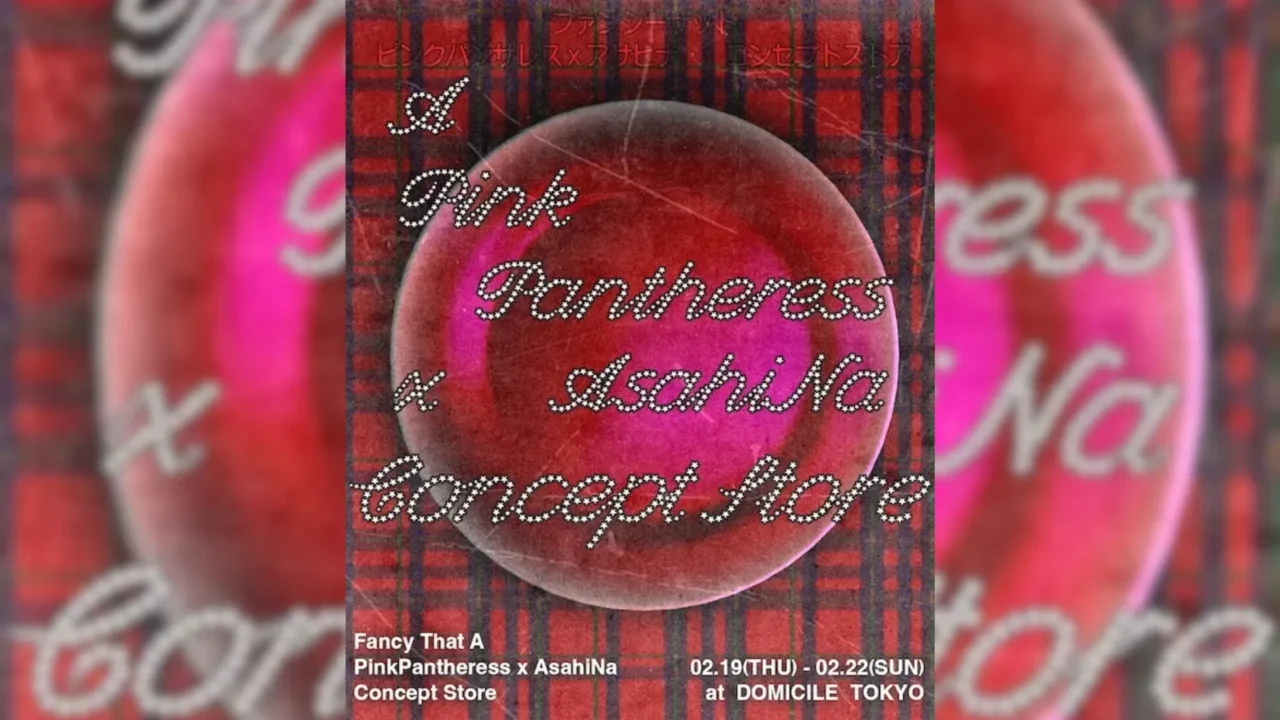In today’s world, we often make choices based on online reviews, trending music on social media, or recommendations from subscription services. With so many external opinions shaping our daily lives, how often do we truly pick something simply because we love it?
In this age of influence, one band is here to celebrate those who passionately follow their own desires. Karakoram no Yamayama, a cinema pop band formed in Tokyo in the summer of 2021, is making waves with their unique sound and bold approach.
Just two years after their formation, they’ve already played at major festivals like SUMMER SONIC and FUJI ROCK, even sharing the stage with their musical idol, Hideki Mukai. Their latest EP, *Shukan Kibatsu*, delves into the concept of “hyperreality”—a world beyond the real and unreal, inspired by YMO’s *Geijutsu*.
Lead vocalist and guitarist Sōtarō Ishida explains that this “hyperreality” is about embracing those who are fully immersed in what they love. Their surreal, captivating expression has been described as “something new and cool” by listeners, evoking the whimsy of *Doraemon* and the imaginative flair of Shinichi Hoshi. It’s a rejection of both the days when passion was cool and the cynicism of modern detachment. In this “hyperreal youth” of Generation Z, perhaps we’ll find the answer to what “coolness” will look like in the future—genuine, unapologetic, and uniquely ours.
INDEX
The Origin: An Original Song That Resonated with the Entire High School Grade
I’d like to ask Ishida, who is primarily responsible for songwriting and composition, about his project “Shibuya Session” under the name Sota Ishida, which he started before forming Karakoram no Yamayama. What inspired this project?
Ishida: In my first and second years of high school, our cover band took first place in the school festival voting, beating out the seniors. But in my third year, our female vocalist left, so we formed a ZAZEN BOYS cover band. Unfortunately, we lost to a Masaki Suda cover band. I realized that if I didn’t do something, I would graduate in second place, so I needed to figure out a way to stay on top…
So, you decided to involve as many people as possible, right?
Ishida: Exactly. I thought about how we could win and came up with the idea to gather all the musicians in my grade and create an album, which became “Shibuya Session.”
Did you feel a sense of accomplishment?
Ishida: When we released the first album Shibuya Session during the COVID-19 pandemic, everyone was at home, and suddenly, all my classmates started listening to the album at the same time. It was such a great feeling to sense that connection. Even though we were all in different places, we were all listening to the same music, and that gave me a thrill. That feeling of excitement is where it all began. Shibuya Session was a four-part series, one for each season, and the fourth album was released during the pandemic. After that, I became more focused on Karakoram no Yamayama.
Did you not pursue music until high school?
Ishida: I started playing piano at age 3, and then picked up guitar in upper elementary school. I made an EP with Ryota Ogawa and joined the brass band in high school.
So, instead of sticking to one instrument, you’ve been involved with a variety of music as a player.
Ishida: From a young age, I had a vague sense of “I’m doing music.” Because of that, I felt I had to get closer to music more than others. As a result, I ended up exploring various genres.

The music of Karakoram no Yamayama is difficult to categorize into a specific genre, as it incorporates vocals, rap, and harmonies in a technical manner. With such a diverse musical background, how did you arrive at this sound?
Ishida: Throughout my life, every time I started something, I’d find someone better than me and end up going in a different direction. I think the result of constantly avoiding people better than me is this mix of various elements. The coolness of creating a new trend with something that doesn’t exist yet was influenced by Ryuichi Sakamoto, and I have a strong desire to pursue that.
INDEX
Members: Those Who Make You Feel Like You’re on a Variety Show Together
How did Karakoram no Yamayama get started? You also recently performed with Hidetoshi Mukai from ZAZEN BOYS at your self-produced event, and in the YouTube comments, people mentioned that they were reminded of ZAZEN.
Ishida: I was deeply impressed by ZAZEN BOYS’ live performance at “Natsu no Mamono” in 2017, and that’s when I decided to form the band. Initially, I started out doing ZAZEN BOYS cover songs with Ryohta Ogawa (Key) and Gura (Dr), and then after I entered university, Yuta Kimura (Ba) joined, and that’s when things really began.
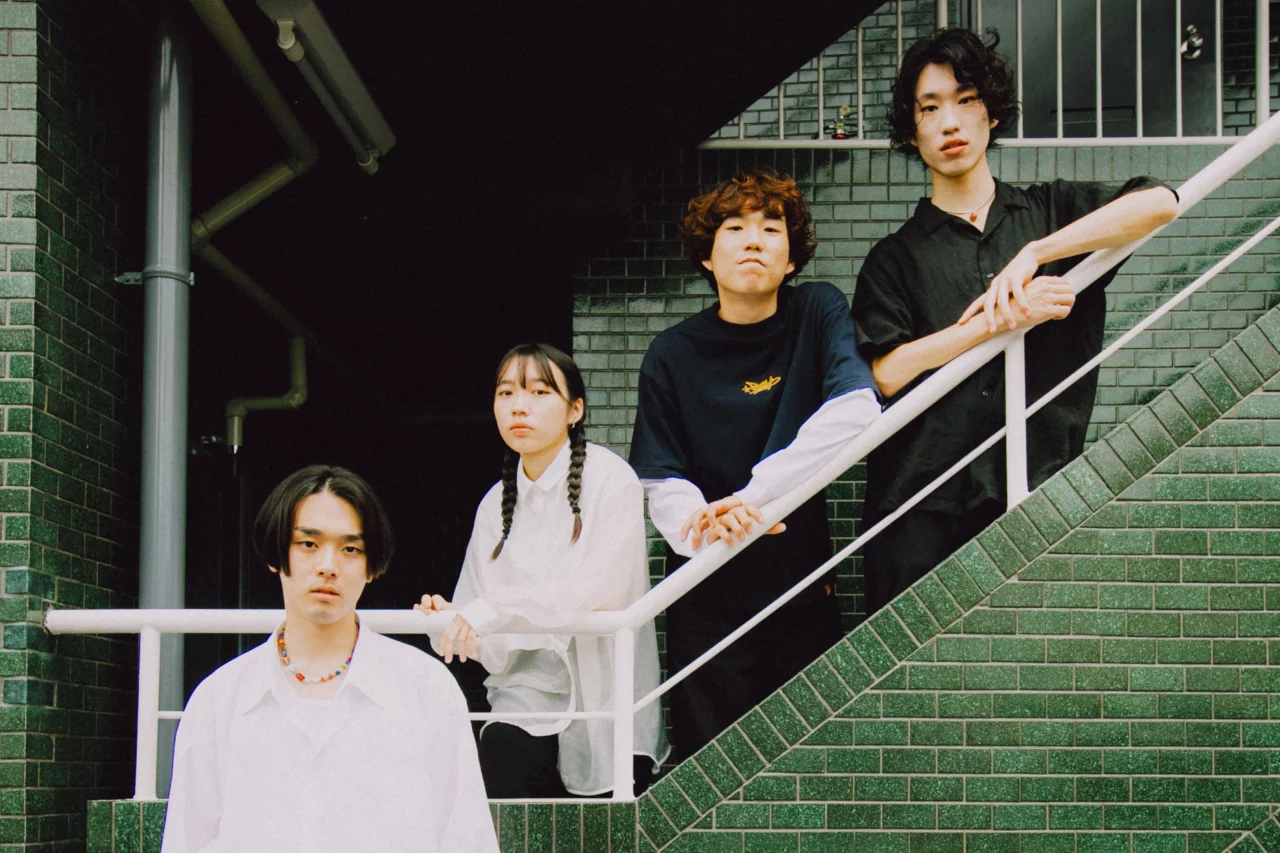
Cinemapop band based in Tokyo since the summer of 2021, consisting of Sota Ishida (Vo / Gt), Gura (Dr), Ryohta Ogawa (Key), and Yuta Kimura (Ba). On top of alternative beats, Sota Ishida’s poetry unfolds dramatically. The members, each with diverse musical backgrounds such as student big bands and jazz clubs, create beats that shift across various styles including funk, techno, and classical in each song. The catchy and original choruses stand out, adding to the band’s unique sound. Their high-energy live performances are also a must-see, with intense, musician-driven stage presence. The live shows feature complex time signatures and loop-based music, presented in a danceable form. Though each member has different musical roots, the variety of arrangements they suggest broadens the band’s creative range.
How did you come to join the band, Kimura?
Kimura: We were rehearsing in the club room for the university festival when, by chance, Sota Ishida came in to drop off his instrument. He struck up a conversation with me, and during our chat, he asked, “We’re in a band called Karakorumo no Yamayama, can you play electric bass?”
Ishida: And then you said, “I can play,” even though you had never played before!
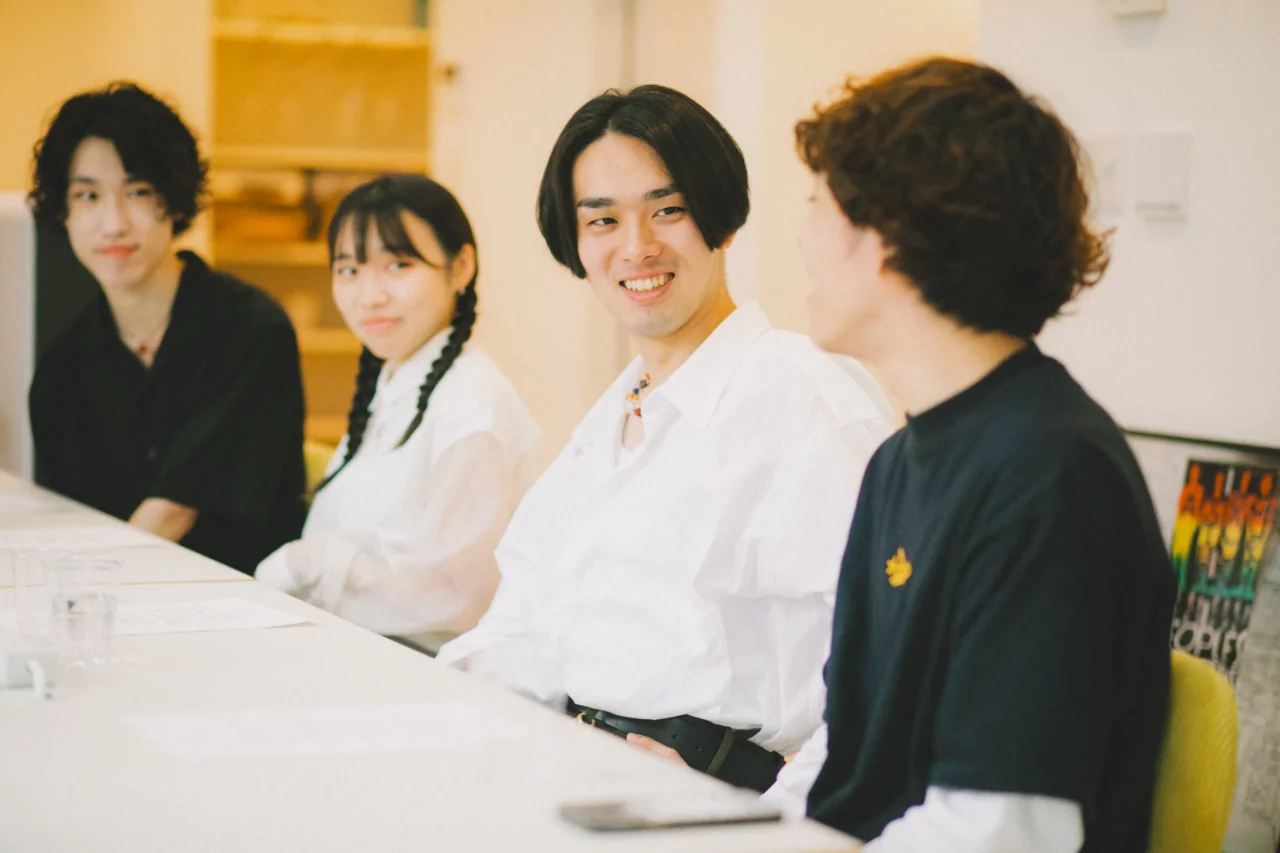
Kimura: I did say that. At the time, I had only played the upright bass. But I wanted to try being a support player.
Did something stand out to you about Kimura when you first spoke to him, Ishida?
Ishida: When I talked to him, Kimura was watching a video of jazz drummers recovering from dropping their sticks. He said he liked the part where they smoothly return to playing after a mistake. When I heard that from him during our first meeting, I thought, “This person is different” [laughs]. I was intrigued by that side of him, so I invited him to join.
So, having something unusual about them is important for feeling like you want to make music with someone?
Ishida: I’m interested in people who make you feel like you’re on a variety show with them. When a strange person on TV says something weird, the MC never says, “This person might be different…” They start a segment to dig deeper into who that person is. I like people who make me want to delve into them like that. I want to be with people who are willing to engage in those kinds of projects or conversations. It’s not that we need a reason to talk to each other; we can just have a conversation toward a common goal outside of ourselves.
It’s like streaming a live performance without an audience. There’s no crowd, but it feels like it’s being broadcasted, and it’s not like we’re just doing it for a small group or for a big audience either.
What kind of show would you say Karakorumo no Yamayama is?
Ishida: It’s like ‘The Best Ten.’ Even though there’s no audience, there’s a sense of a glamorous space being created. The presence of cameras makes it work, but that itself is kind of strange. I think I’m drawn to the absurdity, the wastefulness, and the luxury of it all.
INDEX
The Power of Words: Changing the Atmosphere with a Single Sentence
What other things do you feel a connection to or find interesting, similar to the vibe of Karakoram no Yamayama?
Ishida: When it comes to music, I can’t really think of anything that shares the same ideas, but I often feel a connection to stand-up comedy. In comedy, you can change the whole atmosphere with just one sentence. For example, the routines of Lanjatai, Dr. Heinrich, or Kamomental create an entirely different world with one line, making you think, “These people are a bit strange.” I often feel a connection to that. The strength of words can turn something into either something funny or make someone seem eccentric.
You believe in the power of a single line, don’t you? It’s true that the lyrics of Karakoram no Yamayama also have that “something’s off” quality.
Ishida: The power of words is being able to make someone think “this is weird” with just a short sentence. For example, if someone asks where you’re from and you answer “Tokyo, ya know?” in Kansai dialect, that alone is strange, right? We choose to realize that through music, but I believe there are plenty of people in the comedy scene who share the same view about words.
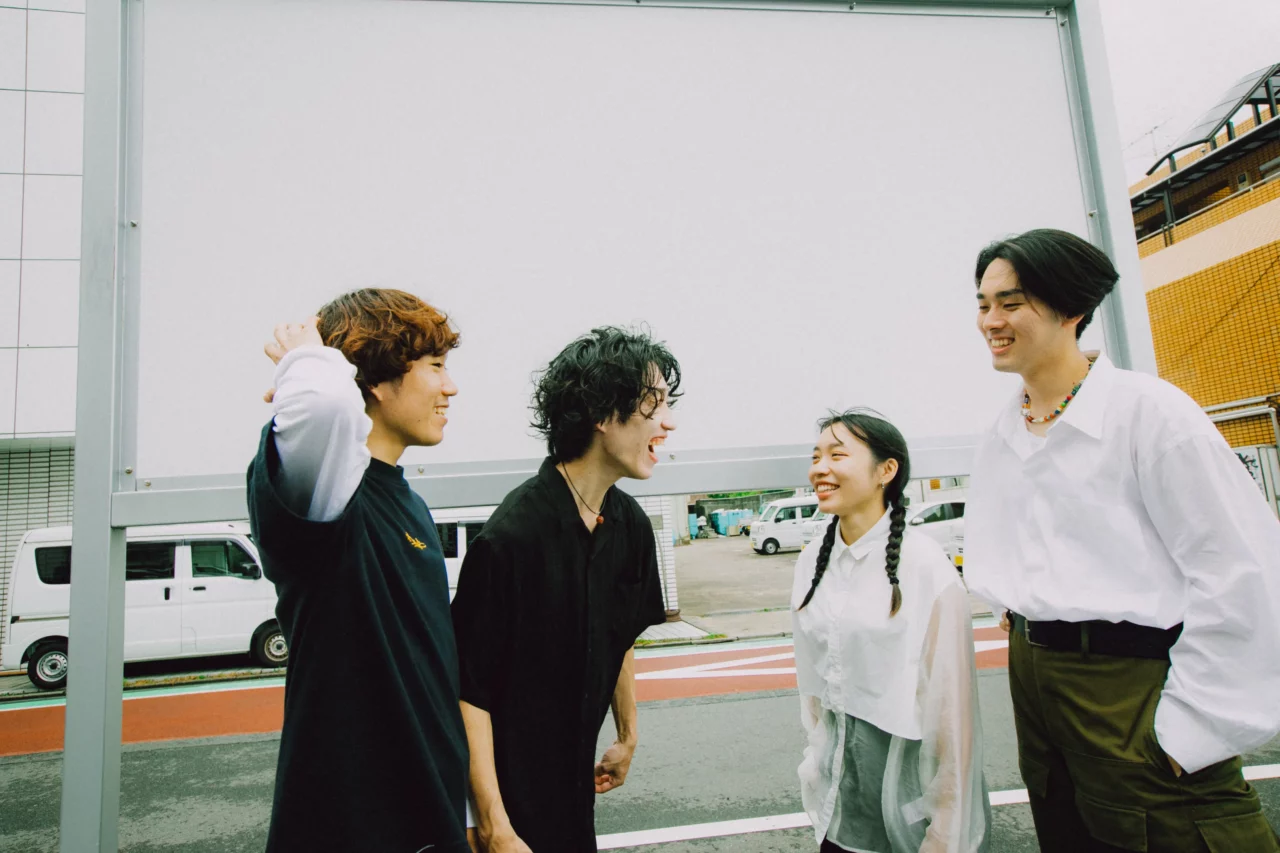
In fact, the latest EP “Shukan Kibatsu,” released in August 2024, also includes a radio sketch titled “Scoop! Infiltrating the AI Employees’ Cafeteria.”
Ishida: The production of this EP started after the members listened to YELLOW MAGIC ORCHESTRA’s BGM (note: BGM refers to their album [Zoushoku]). So, the blueprint for this EP is likely inspired by that.
Note: Zoushoku is a collaboration between Shigeo Kawai’s “The Snake Man Show” and YMO, which includes a radio skit midway through the album.
Have you always listened to a model work before creating your previous projects?
Ishida: Until now, I’ve felt like I was creating a business card with each project. For the previous album Shutsudo no Toshi (released July 2023), there wasn’t a specific concept. I just put together the strongest tracks from what we had at the time. But this time, for the first time, we all discussed together and decided on the kind of work we wanted to create.
Kimura: When we create a live setlist, the phrase “deepening the world view” often comes up, and that’s what we aimed to do with the EP Shukan Kibatsu. Until now, we’ve been making songs with the purpose of performing them live, but this time, there were no such constraints. Because of that, we were able to include tracks that we didn’t necessarily have to perform live, and I believe this album became one that fully immerses listeners in the world of “Shukan Kibatsu.”
Based on what we just discussed, it seems that Shukan Kibatsu has become closer to the concept of a “program.” If you were to compare this work to a TV show, what would it be?
Ishida: It would be Adomachi (Shutsubotu! Adomachi Heaven). It’s a show where they feature various shops and people, and this time, it’s an episode focusing on the town where the “Shukan Kibatsu Girl” lives.
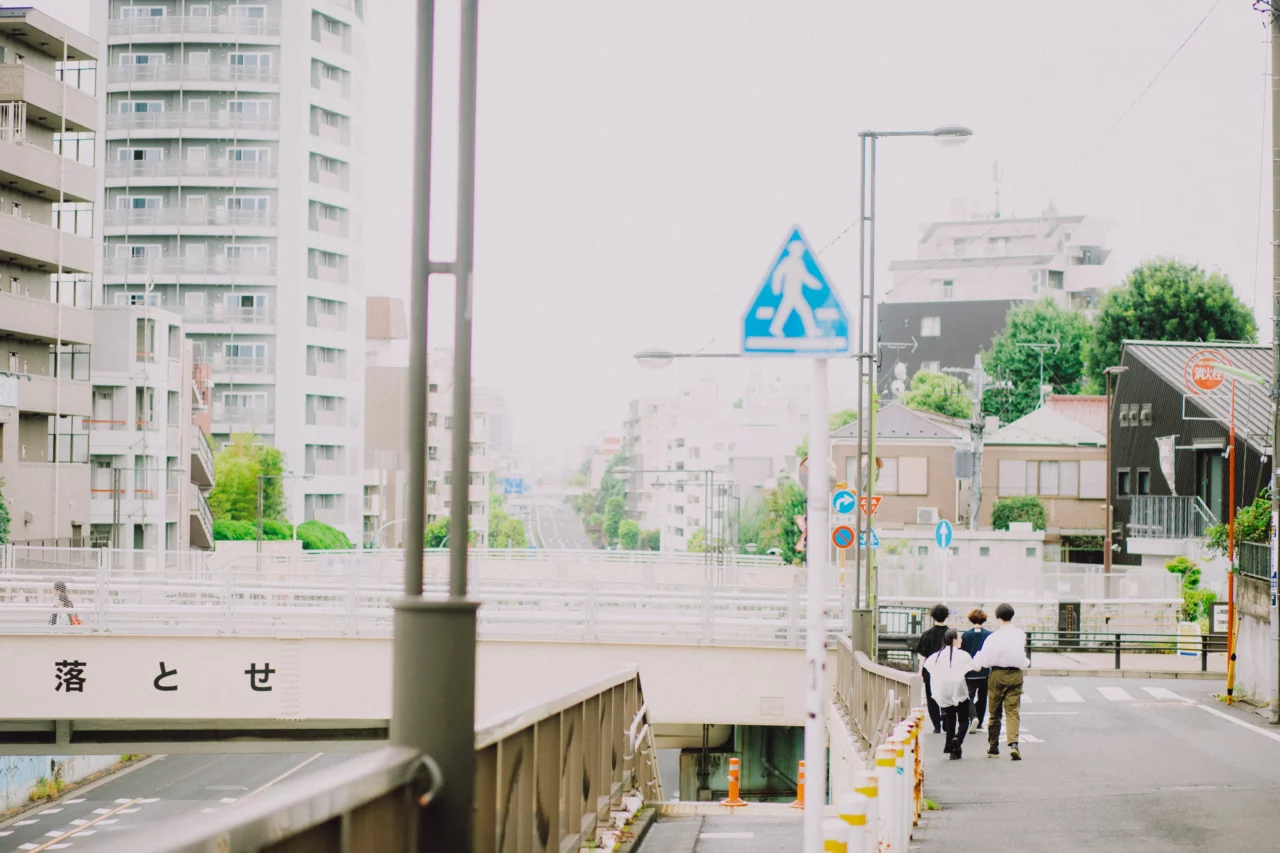
INDEX
A Cold Era, But Passion Isn’t Uncool
The “Column: Superrealism [Ikuta Edition]” captures the city’s landscape in the music, which connects to “AdoMachi,” right? It’s interesting that the notes written by Ishida, which served as the basis for the song, are divided into “Reality Edition” and “Superrealism Edition.” Do you often find yourself thinking about the boundary between reality and superreality?
Ishida: “Superreality” might sound exaggerated, but I think a state like being “really into youth” is superrealistic.
What do you mean by “really into youth”?
Ishida: It’s a state where you’re so absorbed in something that you lose track of everything else. When you’re in the middle of your youth, even if it looks strange from the outside, you fully follow the rules of that world. For example, when I was in high school, I would go to school every morning at 7 a.m. for practice. Looking back now, that seems odd, but for those living in that world, it was normal. You don’t realize how strange it is because it’s just the way things are. I think people living under those mysterious rules are kind of living in superreality.
Yes, looking back, there were definitely school rules that didn’t make sense. Thinking about that, it feels like today’s rules, morals, and compliance are turning superreality into reality, like how club activities can’t go on late at night anymore. Do you feel a sense of urgency to create superreality in this age?
Ishida: I think, from our generational perspective, there are a lot of disillusioned people. With regulations, social media, and various influences, it feels like there’s nothing left that can make people fully immerse themselves and be foolish. I don’t want to go back to an era when being passionate was considered cool, but I also don’t want passion to be seen as lame.
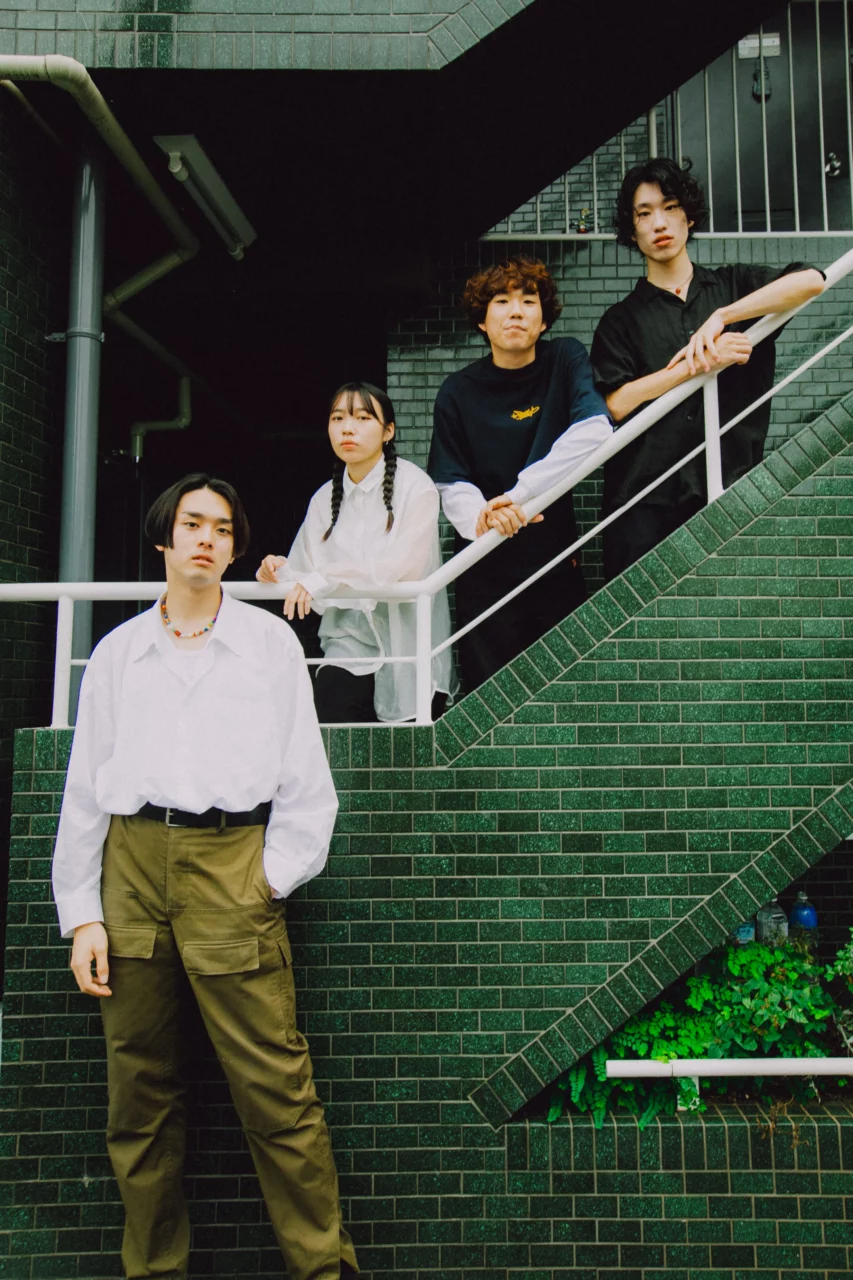
Why do you think we tend to view ourselves from a more detached perspective?
Kimura: I feel like it’s a counterreaction. During the bubble era, people who were hot and in the mainstream tried to act cool to stand out. Now, that’s flipped, and the cool attitude has become the dominant one.
Ishida: Isn’t it more of a counter to those who were cool and stylish, rather than the passionate ones? It’s like we’re looking at the era when being cool was normal from a completely external perspective, a third viewpoint. SNS might play a role in this, but I think superrealistic youth is slowly fading away.
On SNS, you might feel there are people more knowledgeable or passionate than you, and that often leads to using a sort of disclaimer like, “I’m not that familiar with it, but…” I think this line in “Shuukan Kibatsu,” “What is it that you like so much that we roll our eyes?” might really resonate with some people. Do you share this generational sense within the band?
Gura: I really love humans, and I study clinical psychology. In today’s world, people really seem detached, and I feel that in my studies as well. I think it’s related to biological changes in humans, starting with the brain.
Ogawa: The first time I felt that was when I was in fifth grade and danced the Soran Bushi for the first time. Not everyone was shouting “Soran, Soran” from their gut. After that, the teacher said, “You guys need to put more heart into the Soran Bushi!” and after that, everyone passionately shouted, “Soran, Soran!” But during the actual performance, people were like, “Isn’t this kind of lame?” and it felt detached. But I think it’s way more fun and satisfying when you shout from the gut.
Kimura: Don’t you have those moments during school assemblies where the teacher says, “This grade is so quiet”? That kind of moment created a certain mold for us. When they compared us to the previous grade and said, “You can’t beat the older grades,” I think that’s something that still sticks with me.
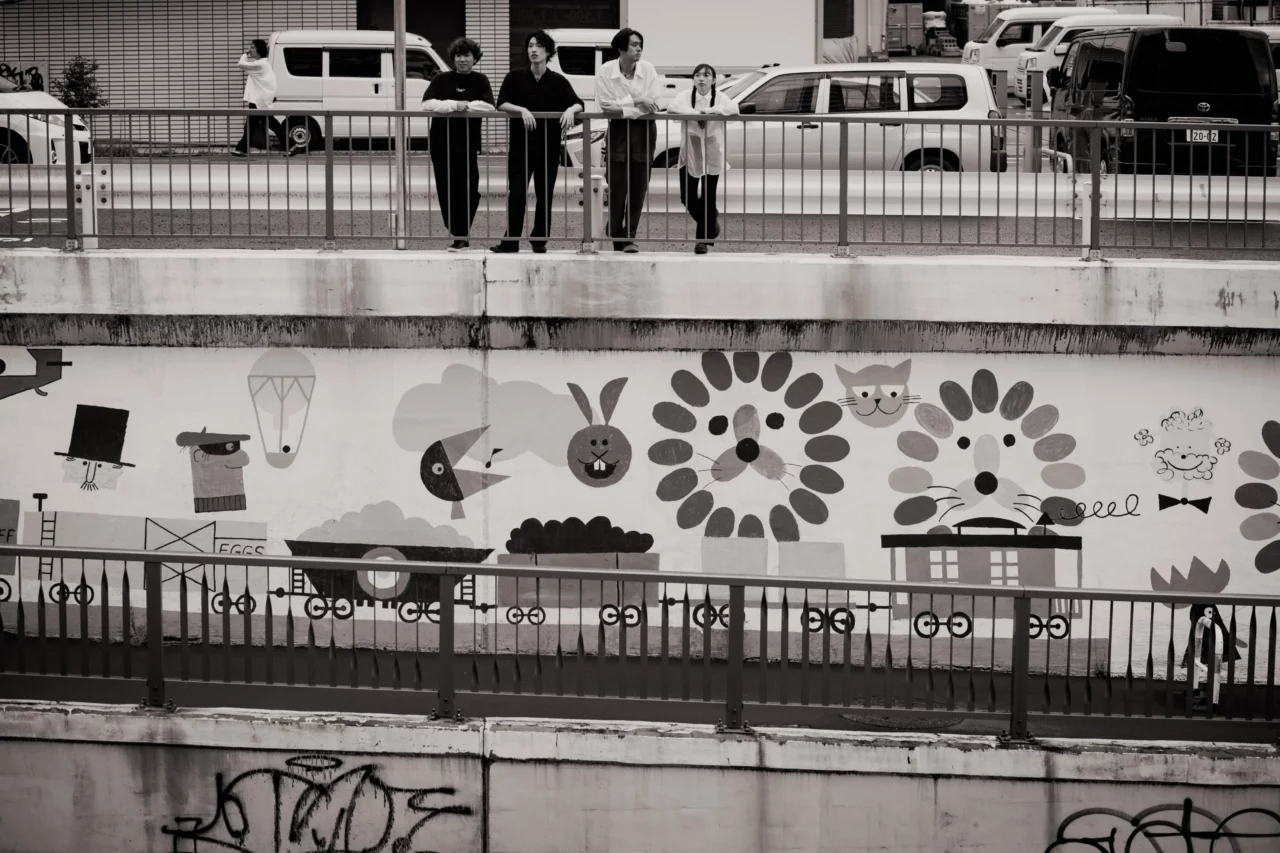
Ishida: The way we were treated at school has really influenced our generational sense. I think it’s a chain reaction, influenced by our teachers’ generational sense, and through that, our own generational sense was created. As a result, a detached generation was formed.
So, in counter to that detachment, is it about wanting to create a world of hyperreality?
Ishida: Yes, it is. Surrealism (※) has this technique of making things interesting by changing the arrangement of everyday motifs. If someone talks about a completely unfamiliar movie, you might not be as interested, but if someone says, “I had this weird dream yesterday,” you’re more intrigued, right? I think it’s because dream stories come from familiar things, but with something unknown in them. So, rather than just reality and unreality, I want to present hyperreality as a new possibility. Not many people are doing that, so I have an experimental spirit, wanting to try something out because I find dreams interesting.
※Editor’s note: Surrealism, an artistic movement, is characterized by expressing the space between reality and unreality through the unexpected combination of real-world motifs, focusing on dreams and the unconscious rather than visible events.
You’re not trying to create a world entirely disconnected from reality.
Ishida: Right, it’s more about trying to create a world that’s slightly shifted from the reality we know, something that exists, but just a millimeter off from what we’re used to.
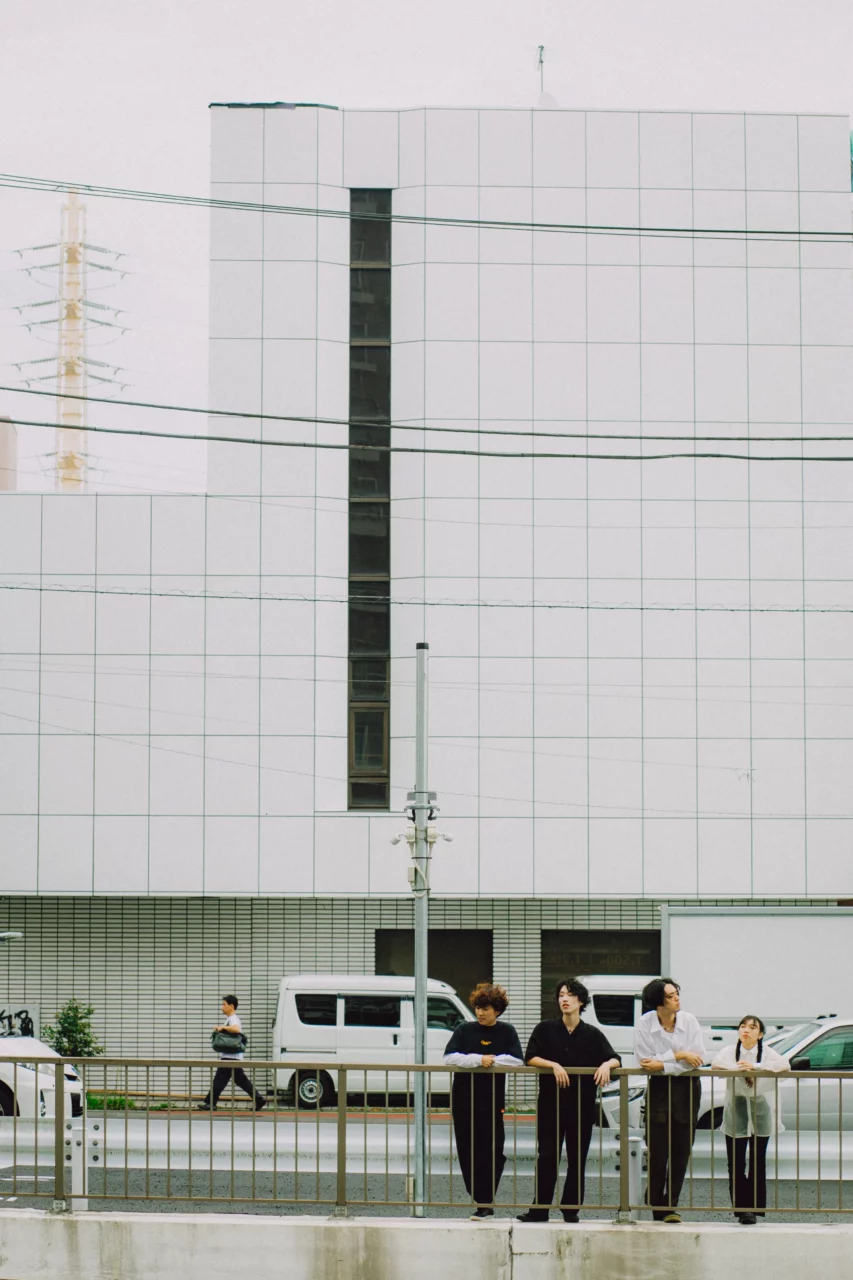
INDEX
Celebrating the Protagonists Embracing Youth in the Song
In the music videos directed by the members for each song, AI is used. AI also connects to the surrealistic elements in the work. How do you all perceive AI?
Kimura: For example, in image generation AI, elements like a hand turning into a foot feel surreal, as AI combines things that humans typically wouldn’t merge.
Ishida: AI can bring to life a world that’s close to what we want to create. Recently, at the De Chirico Exhibition, I overheard a couple saying, “This looks like something from Google Pixel.” Lately, it feels like surreal elements are commonly seen even in advertisements, so I think AI can serve as a gateway to the surreal.
When I listen to Karakoram no Yamayama, it reminds me of the world of Doraemon. Even though it depicts a reality similar to our own, the existence of Doraemon makes it feel otherworldly in a way.
Ishida: Doraemon is just a cat-shaped robot placed in the real world, right? It’s like the example with the comedy routine earlier—there’s something fascinating about making a change with just a small addition, and that aligns closely with my ideals.
Gura: “Shukan Kibatsu“ cover—it’s Doraemon, right?
Ishida: Yes, it’s inspired by Doraemon.
Gura: Who’s supposed to be Gian?
Kimura: Gian’s too violent—he’s not here.
Ishida: It’s Doraemon, Suneo, Nobita, and Shizuka-chan. We actually replicated the composition of an image from the show.
Ogawa: I think the world of Karakoram no Yamayama is kind of similar to Shinichi Hoshi’s novels. In his essays, Hoshi talks about the interesting combinations of old and new things, and his stories always start with something grounded in reality, then gradually shift, like the lens going out of focus. It’s ironic but also funny, and you end up feeling connected to the protagonist. I feel like Karakoram no Yamayama also has this element of wanting to celebrate the protagonists, and I think that aspect is similar to Hoshi’s world.
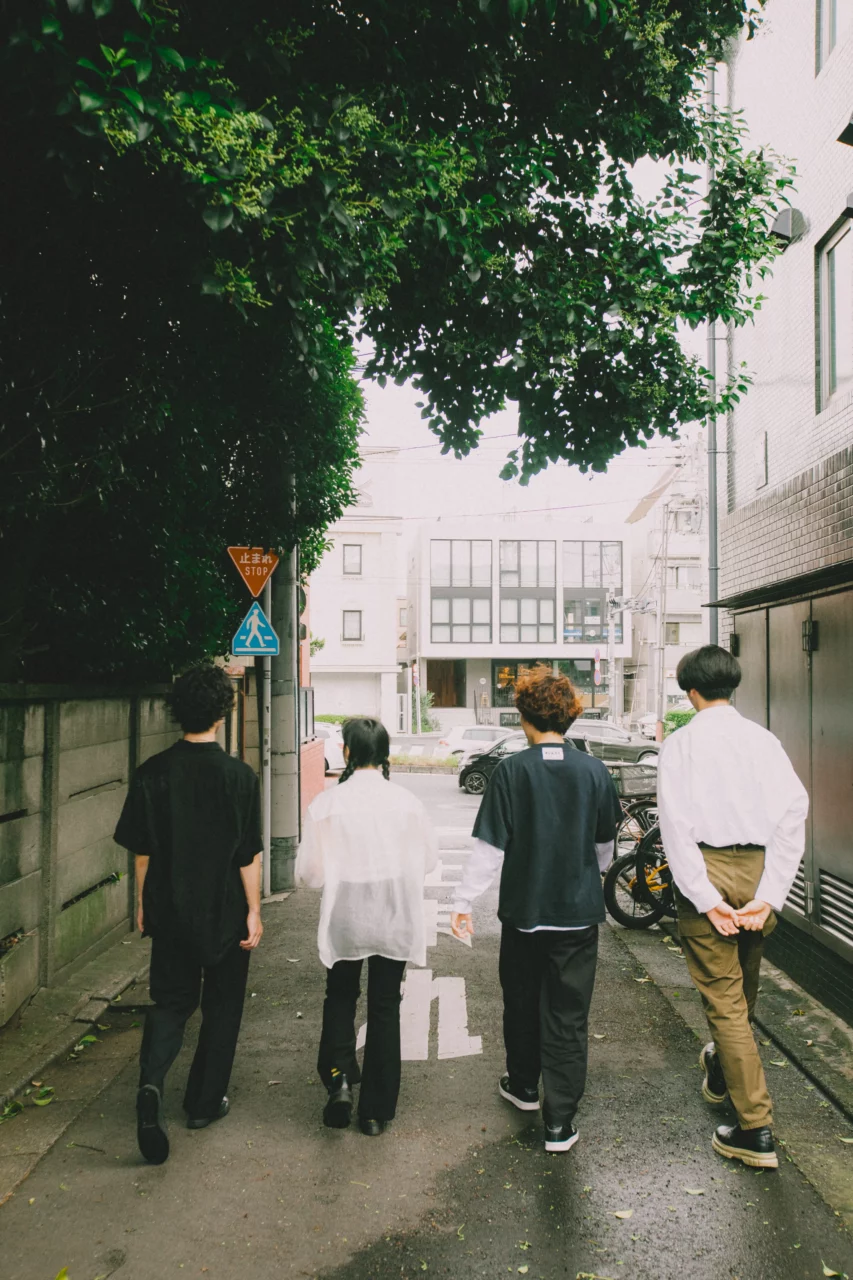
Ishida: Recently, NHK aired a live-action drama called The Strange, Strange Short Stories of Shinichi Hoshi, and it was really fascinating. There are many scenes where you wonder, “How can they have a normal conversation in such a bizarre situation?” Even though they’re in an unfamiliar world, on a different star, they still use everyday language to talk about ordinary things. That’s the kind of thing I want to do too.
Earlier, Ogawa mentioned “blessing,” and in the self-liner notes for Ippai Hito, you also wrote, “Even though I’m someone who tends to look at everything from an angle, I still wish to bless everyone from behind.” Where does this feeling come from?
Ishida: I went to a Christian school, so I had daily chapel services from elementary school. In the Bible, “blessing” means “promise.” For example, when it says, “God will bless you,” it means “I am watching over you.”
So, when I talk about “blessing,” it means that, as creators, we’re acknowledging the characters we’ve created in our songs, telling them that they are allowed to exist within their world, to stay in their youth as they are. And not just the characters in our stories—anyone who loves something and is working hard at it, anyone who, in the midst of youth, continues to love something and work at it despite being judged for it, should be blessed.
You seem to place great importance on the sincerity and purity of loving something.
Ishida: I think it’s really difficult to genuinely like something of your own will in today’s world. It’s an era where having something you love is like a treasure, and simply chasing after something you love with all your heart, even if it makes your eyes seem strange, is a rare and precious thing. I realized this when I became a university student, and because I understand that difficulty, I think that might be why I feel such attachment to those who live in that surreal world.
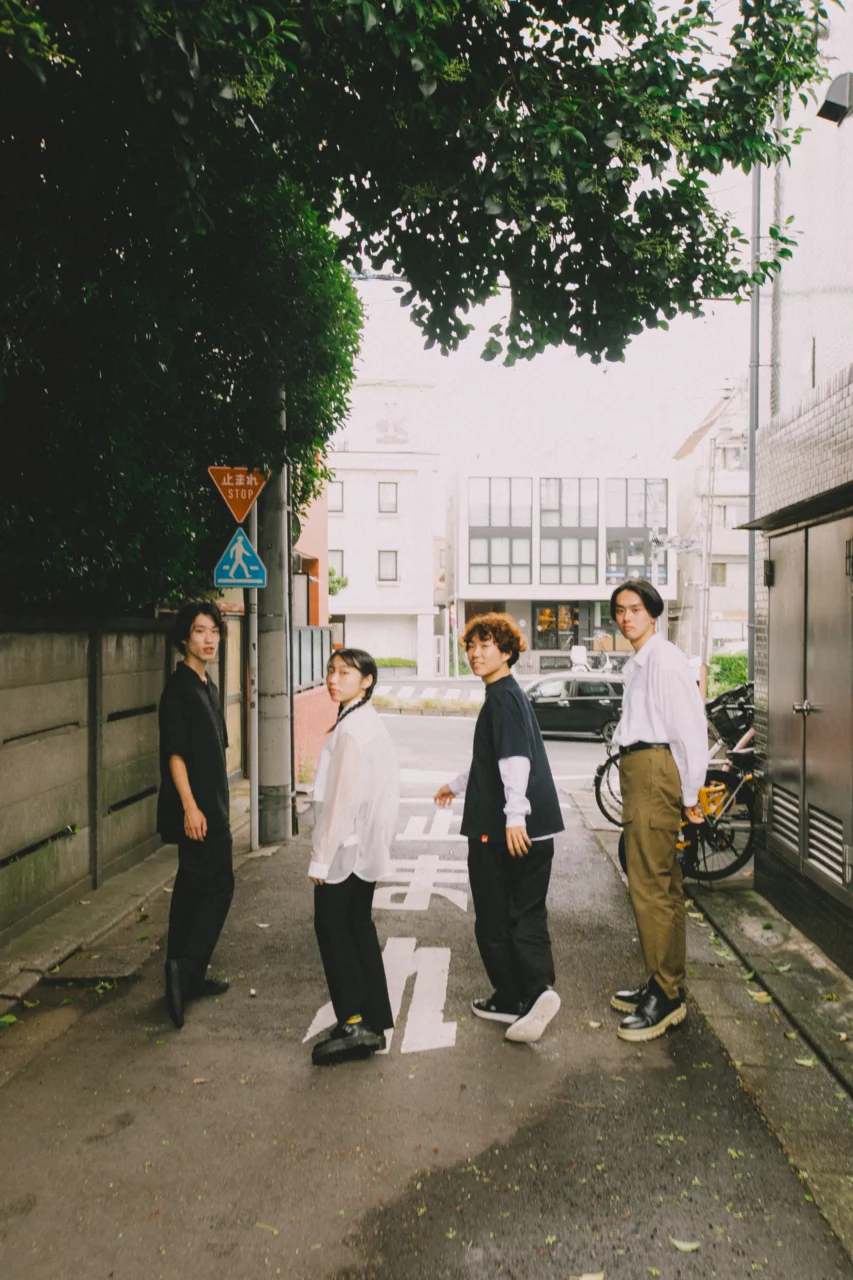
Karakoram no Yamayama “Shukan Kibatsu”

Release Date: August 14, 2024
Streaming Link: orcd.co/wapvb0j
Karakoram no Yamayama Official Website: https://lit.link/karakoramJP
X: https://x.com/karakoram_jp
Instagram: https://www.instagram.com/karakoram_jp/
exPoP!!!!! vol.167
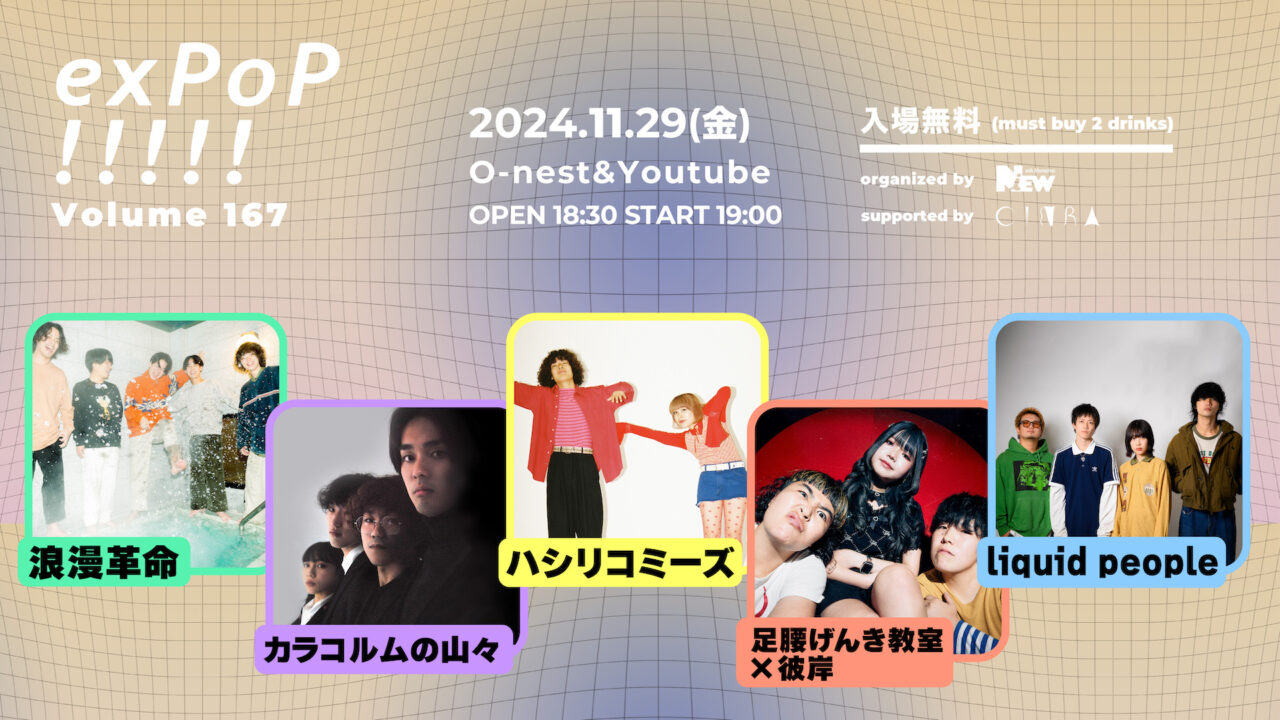
Date: Friday, November 29, 2024
Venue: Spotify O-nest
Time: OPEN 18:30 / START 19:00
Admission: Free (must buy 2 drinks)
Streaming: https://www.youtube.com/@NiEWJP
Performers: Roman Kakumei, Karakoram no Yamayama, Hashiricomies, Ashikoshi Genki Kyoshitsu × Higan, liquid people
■ Ticket Reservation Form
*Please note that entry may not be allowed without a reservation
https://expop.jp/tickets/167






















